#Maria Pakulnis
Explore tagged Tumblr posts
Text










Dekalog: Three (1988) | dir. Krzysztof Kieślowski
#dekalog: three#dekalog#krzysztof kieślowski#daniel olbrychski#maria pakulnis#tv series#cinematography#screencaps
31 notes
·
View notes
Text
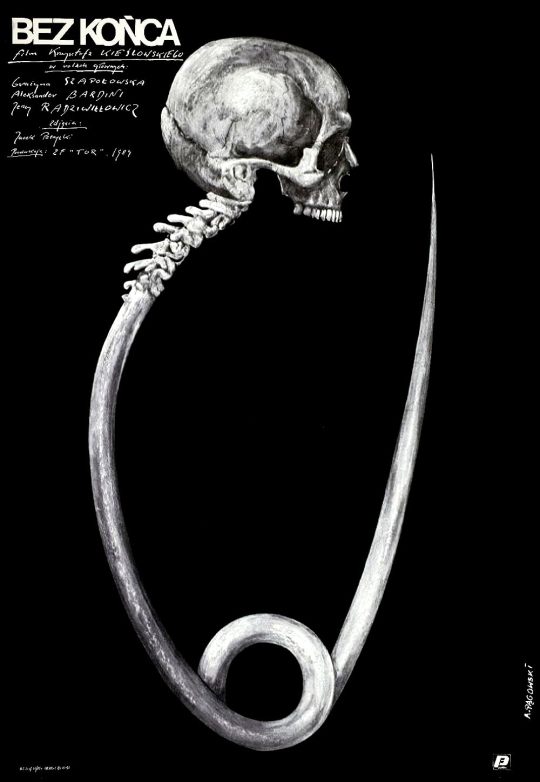

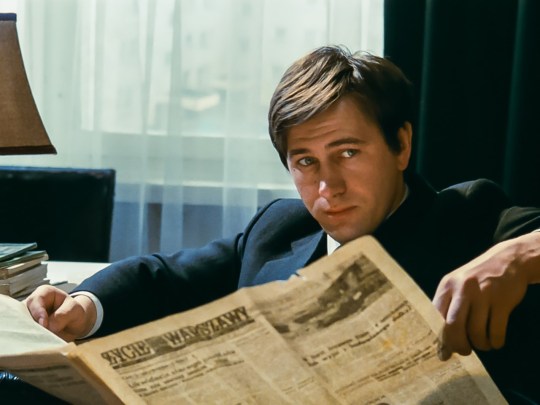
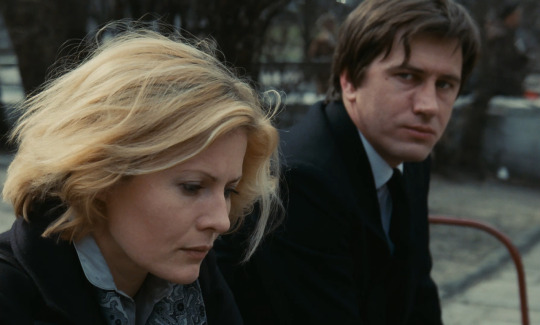
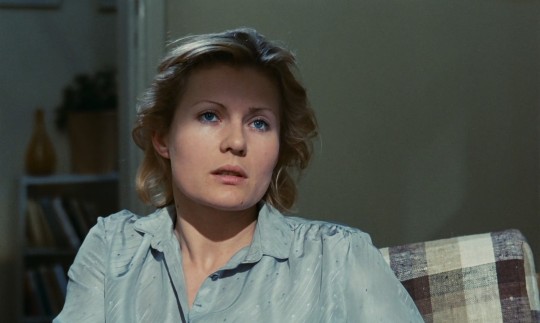


No End (Bez końca) (1985) Krzysztof Kieślowski
July 31st 2023
#no end#Bez końca#1985#krzysztof kieślowski#Grazyna Szapolowska#Aleksander Bardini#Maria Pakulnis#Jerzy Radziwilowicz#Krzysztof Krzeminski#Artur Barcis#Michal Bajor#Marek Kondrat#Tadeusz Bradecki
7 notes
·
View notes
Text

Bez końca (1984), dir. Krzysztof Kieślowski
0 notes
Text
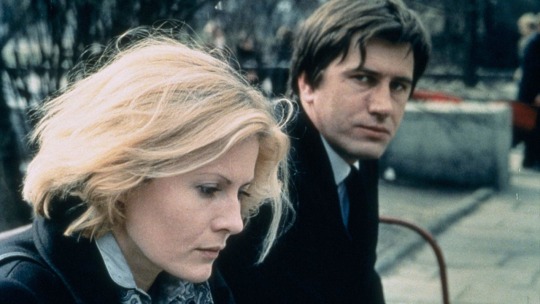
Grażyna Szapołowska and Jerzy Radziwilowicz in No End (Krzysztof Kieslowski, 1985)
Cast: Grażyna Szapołowska, Maria Pakulnis, Aleksander Bardini, Artur Barciś, Danny Webb, Jerzy Radziwilowicz, Krzysztof Krzeminski, Michal Bajor. Screenplay: Krzysztof Kieslowski, Krzysztof Piesiewicz. Cinematography: Jacek Petrycki. Production design: Allan Starski. Film editing: Krystyna Rutkowska. Music: Zbigniew Preisner.
Krzysztof Kieslowski's No End takes place during the suppression of Solidarity and the imposition of martial law in Poland in 1982, producing the melancholy, despairing tone that pervades the entire film. Kieslowski and his co-screenwriter, Krzysztov Piesiewicz, place the underlying politics in the context of personal loss, the death of the lawyer Antek Zyro (Jerzy Radziwilowicz) and its effect on his wife, Urszula (Grazyna Szapolowska), and child (Krzysztof Krzeminski). Having the dead Antek address the camera at the film's beginning is a bold move, one that threatens to turn the film into a sentimental fable about a love that persists after death. But as we see, the relationship of husband and wife was not an ideal one, and the feeling of guilt that she experiences after his death is potently developed. (I'm not sure it entirely justifies the film's ending, however.) A premature death like Antek's inevitably results in unfinished business, not only in the life of his family but also in the legal case, that of the incarcerated political prisoner Darek Stach (Artur Barcis) he left undefended. The defense of Stach devolves upon Mieczyslaw Labrador (Aleksander Bardini), the aging lawyer who would not have been Antek's choice for the role. Labrador saves Stach from a longer prison term by engineering a compromise with the judge, a move opposed by Labrador's own assistant (Michal Bajor), who still clings to some of the ideals of the suppressed Solidarity movement. The decision makes no one really happy, because Stach, like everyone else in Poland, isn't really free. The interweaving of the Stach case and Urszula's attempts to resume a normal life despite grief and guilt is sensitively handled, with the great help of Krystyna Rutkowska's editing and Zbigniew Preisner's score.
0 notes
Photo






Dekalog Three, 1988
174 notes
·
View notes
Photo

Dekalog: Three
directed by Krzysztof Kieślowski, 1988
#Dekalog#Dekalog: The Ten Commandments#The Decalogue#Dekalog: Three#Krzysztof Kieślowski#movie mosaics#tv mosaics#Maria Pakulnis#Daniel Olbrychski#Joanna Szczepowska
9 notes
·
View notes
Photo






Dekalog, trzy (Kieślowski, 1988)
#dekalog trzy#dekalog#krzysztof kieslowski#Kieślowski#Daniel Olbrychski#Maria Pakulnis#cinema#film#poland
15 notes
·
View notes
Photo










No End (Krzysztof Kieslowski, 1985)
#grazyna szapolowska#maria pakulnis#jerzy radziwilowicz#krzysztof kieslowski#bez konca#no end#polish cinema#polish#polska#poland
59 notes
·
View notes
Text
Polish Film: Schodami w górę, schodami w dół (Upstairs Downstairs, dir. Andrzej Domalik, 1988)



there's no energy in this film; the Polish cinema in the 1980s was immersed in gloom, which here is telegraphed through the frustrating lack of any creative vibe that is promised by the film's setting: a small town in Southern Poland's mountains in 1939, where a slew of well-off artists and other elitist outsiders spend time eating and having leisurely fun while dreading the imminently tragic future (since, of course, they DO know what's coming); nothing seems like fun, and everything is so much in your face: "Does it make sense," asks, at some point, the protagonist, a younger artist who visits an older artist (the cross-generational learning between cis men is a frequent trope in overwhelmingly sexist Polish films), and immediately after clarifies, "Does it make sense to practice art?"; the latter is bitter and unwilling to offer sage advice other than "Run away," since WW2 is coming; in another scene, the character played by Maria Pakulnis waltzes into a restrainedly ecstatic dance because it starts raining, to which the older artist declares that "They all feel the same" (= the war is coming); Domalik falls into an ample category of Polish directors and writers whose films would love to ogle women's breasts, which is the threshold of the film's sexual content, sadly because it declares something more nuanced and raw; once, for a moment, this anti-sexual corset turns slightly meta when the Baroness, played by Dymna, protests against one doctor's wish to take off her shirt, but then it quickly turns out to be a sexual innuendo, which leads to nothing at all
0 notes
Text
#dekalog#dekalog 3#tv mini series#review#krzysztof kieslowski#daniel olbrychski#maria pakulnis#artur barcis
0 notes
Photo

Dekalog: Three - Krzysztof Kieslowski,1990 * Daniel Olbrychski, Maria Pakulnis
13 notes
·
View notes
Text
i was litearally today years old i found out maria pakulnis is calanthe’s voice atress in the audiodrama and. it makes SO. MUCH. SENSE.
1 note
·
View note
Photo


Dekalog Three, 1988
55 notes
·
View notes
Photo

Dekalog
directed by Krzysztof Kieślowski, 1988
#Dekalog#Dekalog; The Ten Commandments#The Decalogue#Krzysztof Kieślowski#movie mosaics#tv mosaics#Wojciech Klata#Aleksander Bardini#Maria Pakulnis#Janusz Gajos#Miroslaw Baka#Teresa Marczewska#Ewa Błaszczyk#Zbigniew Zamachowski#Maja Barełkowska#Grażyna Szapołowska#Jan Tesarz#Adrianna Biedrzyńska#Henryk Baranowski#Krystyna Janda#Daniel Olbrychski#Olaf Lubaszenko#Bogusław Linda#Maria Kościałkowska#Piotr Machalica#Jerzy Stuhr
9 notes
·
View notes
Photo




Dekalog, trzy (1988)
12 notes
·
View notes







